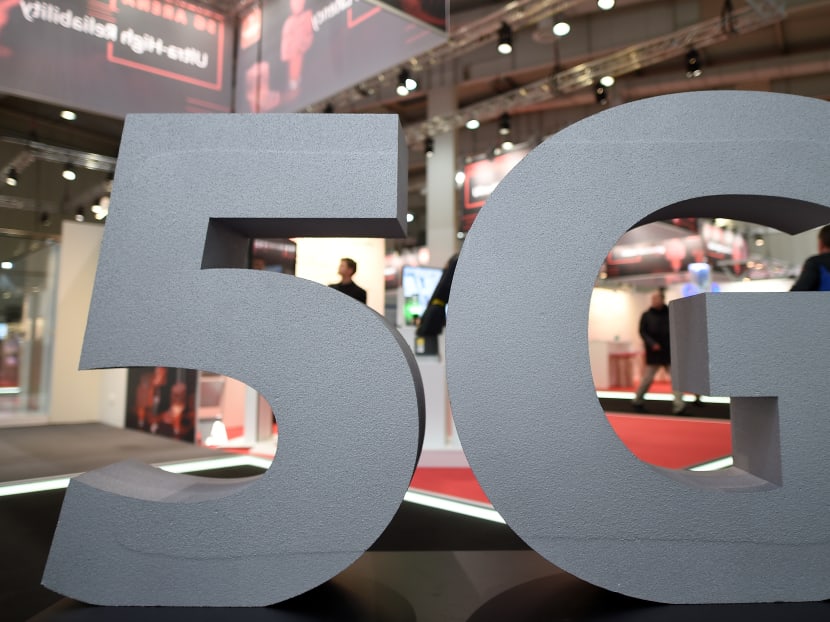Internet’s ‘cloak of anonymity’ has fuelled distrust over roll-out of 5G networks: PM Lee
SINGAPORE — Noting the distrust over the roll-out of fifth-generation (5G) mobile networks due to the recent Huawei ban by the United States, Prime Minister Lee Hsien Loong said that the Internet’s cloak of anonymity means everyone would deny intruding into other networks as they “can’t be found out”.

Prime Minister Lee Hsien Loong said that trust is a “very serious” problem when it comes to the roll-out of 5G networks, but each country will have to weigh its options and the uncertainties, and make its own choices about 5G systems.
SINGAPORE — Noting the distrust over the roll-out of fifth-generation (5G) mobile networks due to the recent Huawei ban by the United States, Prime Minister Lee Hsien Loong said that the Internet’s cloak of anonymity means everyone would deny intruding into other networks as they “won’t be found out”.
“You can’t definitively identify who the bad guys are (or) who the intruder is. Do I know who he is? I can suspect. Can I prove who he is? I can’t,” Mr Lee said at a question-and-answer session after opening the Shangri-La Dialogue, an annual defence summit, on Friday night (May 31).
Under this cloak of anonymity, the incentive for non-state or state players to behave is “considerably diminished”, he added.
“What is to stop you or what is to stop me from doing what I want to do, which is really not a good thing?” he asked.
Mr Lee was responding to a question from Mr Shawn Ho, an associate research fellow at the S Rajaratnam School of International Studies, a Singapore-based think tank.
Mr Ho asked whether Singapore shared Malaysian Prime Minister Mohamad Mahathir’s view on Huawei and whether Singapore would engage the Chinese telecommunications giant in deploying its 5G network.
There are concerns that the Chinese government could use Huawei’s 5G equipment for spying.
Several countries, including the United States, have blocked the firm from selling the equipment on national-security grounds.
Dr Mahathir had said on Thursday that Malaysia was “too small to have an effect on a huge company like Huawei”, and the telecom company’s research is “far bigger than the whole of Malaysia’s research capability”.
The Malaysian leader added that his country tries to use Huawei’s technology as much as possible. “Yes, there may be some spying, but what’s there to spy in Malaysia?” he said.
Responding to Mr Ho, Mr Lee quipped that Singapore was “even smaller than Malaysia”.
He said that the country is in the process of selecting its 5G system and equipment, and it would reach a decision “in due course”.
Singapore’s authorities are seeking public and industry feedback on its proposals to roll out 5G networks.
READ ALSO
Explainer: IMDA’s proposed framework for ultra-fast 5G networks in Singapore
NO TRUST FOR EACH OTHER
Mr Lee said that trust is a “very serious” problem when it comes to the roll-out of 5G networks.
“Everybody denies doing this (intruding into other networks), and yet if you look around the room, everybody says, ‘I have a very serious problem with cyber security, with intrusions,” he said.
“Who are these people? Well, if you study it… there are multiple actors, including state-sponsored actors. Which states? Which sponsors? We don’t know. But there are (many) of them there and none of us has said that we’re ‘them’.”
Mr Lee said that this leads to a climate where parties cannot afford to trust one another, and where they can neither prove their innocence nor guilt.
This leads to what economists term a “market failure”, Mr Lee said.
“I should do the business. There is an opportunity to trust one another, but it’s failed.”
In the long term, Mr Lee said that there ought to be rules, and ways to pin responsibility and “name and shame”.
“Then there (will be) some restraint… I won’t do this (and) you won’t do this, because everybody will know if I do it. And it will damage my reputation,” he added.
But these will take time to carry out, he said.
In the meantime, each country will have to weigh its options and the uncertainties, and make its own choices about 5G systems.
HOW TO AVOID CONFLICT
Mr Lee also took two other questions from Lieutenant-General He Lei of China and Professor Lee Chung Min, chairman of the advisory council at the International Institute for Strategic Studies, the summit’s organiser.
Lieutenant-General He asked how the great powers could avoid conflict and confrontation, and what small countries could do to avoid taking sides.
Mr Lee replied that the US and China must discuss their issues openly and candidly, and that small countries were trying their best to maintain ties with both. But Mr Lee noted that to actively avoid taking sides also requires “not being pressured to take sides”.
Prof Lee asked what Mr Lee would suggest to China’s leaders to raise the comfort levels of Asian states amid a “deep sense of discomfort” with China.
Mr Lee pointed to the US, which has been welcomed in Asia, where it has many friends.
“It’s quite hard to ask one big country to choose another big country as a role model, but I think there’s something to be learnt from the US’ experience in Asia since the war.”








